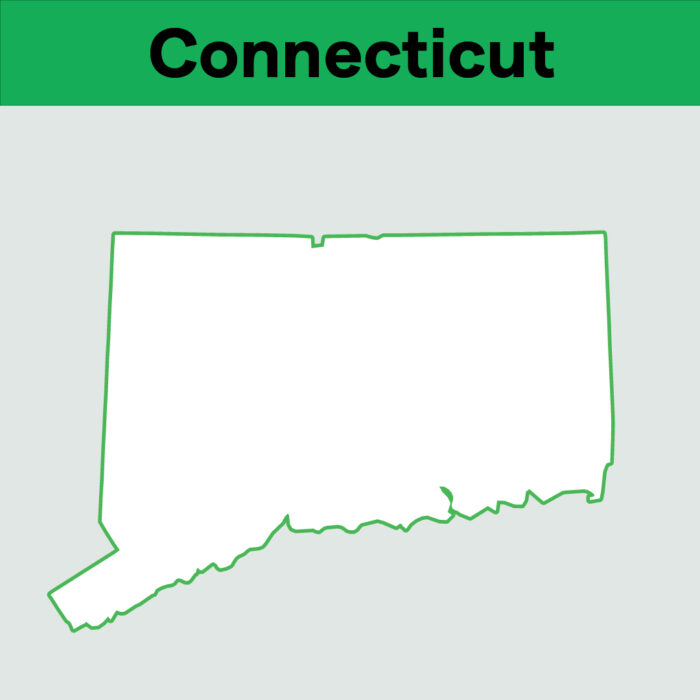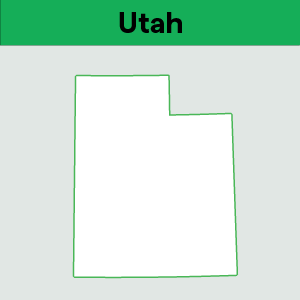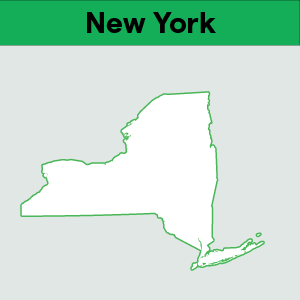Sales tax guide for book sellers
by December 9, 2024
Selling books has traditionally been a lucrative e-commerce business. Just look at what all this ambitious Seattle-based online bookstore has managed to accomplish.
Of course, just like any other e-commerce business, book sellers are required to contend with sales tax, often in multiple states. This guide will spell out the basics of sales tax for book sellers, including some special cases book sellers run into when it comes to collecting and remitting sales and use tax.
The basics of sales tax for book sellers
Forty-six US states and Washington D.C. all have a sales tax. States and local areas use sales tax to pay for budget items like schools, roads and libraries. But states don’t collect sales tax from consumers directly. They rely on business owners, like book sellers, to collect it from your buyers and then periodically remit it back to state taxing authorities.
Each state’s laws regarding sales tax are a little different, but in general any “tangible personal property” is considered taxable. This includes physical books. And, increasingly, states are also requiring sales tax digital books.
Sales tax rates also vary across states, counties, cities and other local areas. That’s why you might pay 6.5% in sales tax at a store in a suburb, but then drive 20 miles and pay 9% sales tax at a store within a city’s limits. Varying sales tax rates will determine how much sales tax you charge when selling your books.
When are you required to charge sales tax on books?
In the US, you are only required to charge sales tax to buyers in states where you have sales tax nexus. Sales tax nexus is just a fancy way of saying a “significant presence” in a state.
If you own a single physical bookstore and only make sales to customers who walk through your door, then you likely only have sales tax nexus in your home state. That means you’d only be required to register for a sales tax permit and collect sales tax from buyers when ringing them up at your store’s cash register.
Of course, selling books is much more lucrative when your customer base is not limited to people who walk into your shop. Though, when you sell online, your book business’s sales tax life can become complicated quickly.
Here’s an example of other business activities that might cause sales tax nexus (and thus the requirement to collect sales tax) in a state:
- Having an office, store or other location in a state (even a home office)
- Having an employee, salesperson, contractor, etc. in a state
- Owning a warehouse or storage facility in a state
- Storing inventory in a state (such as in an Amazon FBA warehouses or other 3rd party fulfillment center)
- Having a third-party affiliate in a state
- Temporarily doing physical business in a state for a limited amount of time, such as at a trade show or craft fair
- Economic nexus – Making above a certain amount of sales in a state (either above a certain dollar amount or a certain number of transactions)
So a bookseller who owns one physical bookstore in New York and only makes sales in the shop would generally only have sales tax nexus in New York.
But a large bookseller who has locations in New York, Massachusetts and California, employs a remote customer service employee in Kansas, and exceeds the economic nexus threshold in five other states would have a much more complicated sales tax experience and be required to collect sales tax from buyers in multiple states.
Later in this guide we’ll get to what to do if you have sales tax nexus and are required to collect sales tax from your book loving customers.
Selling books on online marketplaces
E-commerce sales tax has changed a great deal over the past few years due to the South Dakota v. Wayfair Supreme Court decision. One change for the better when it comes to independent retailers is that major online marketplaces are now required to collect sales tax on behalf of third-party sellers.
This means that third-party booksellers who use the common online marketplaces like Amazon or eBay to sell books don’t need to worry about sales tax (at least on their marketplace sales). Amazon, eBay and other major marketplaces are required to collect and remit sales tax on behalf of the third-party sellers using their platforms. But there’s a huge caveat here. Marketplaces only collect sales tax on marketplace sales. If you sell books online via your own website and via marketplaces like eBay, you are still required to collect sales tax from buyers in your nexus states on sales you make via your own website, in-person, or in any other way.
Let’s look an example:
Bailey sells used books through Amazon.com and through their own online shopping cart powered by Shopify. When they make a sale through Amazon, Amazon collects the sales tax from the buyer and remits it on Bailey’s behalf. But when Bailey makes a sale through their Shopify-powered site to a customer in a state where Bailey’s business has sales tax nexus, Bailey is required to collect the sales tax from the customer and remit it to state taxing authorities.
This is just one of many ways that sales tax can get confusing quickly. For more on what marketplace sellers need to know about sales tax, check out our guide to every US. state’s marketplace facilitator laws.
Are all books taxable?
E-commerce sellers are only required to collect sales tax on items in a state when that state considers the item taxable. For example, while a desk lamp would generally be taxable in every state with a sales tax, many states exempt necessities like groceries or medication from sales tax.
As much as we may disagree with it, physical copies of books are not generally considered necessities and are almost always taxable. But with one exception… textbooks.
Sales tax exemptions, such as the ones certain states allow on groceries and medication, are meant to offer a measure of relief to people purchasing necessities, and a handful of states have declared that textbooks are non-taxable. Though, there are often restrictions, such as that the textbooks need to be sold at a university bookstore or required for a college or university class. In some cases, used textbooks sold by any seller are tax exempt.
Knowing when and when not to charge sales tax on textbooks can be challenging, but we’ve put together a guide to textbook taxability here.
Taxability of digital books
Sales tax is a bit more complicated when it comes to the sale of digital books, such as eBooks that are downloaded directly to a device. Digital products, including books, are currently only taxable in about half the U.S. states with a sales tax. This means that if you sell an eBook to a buyer in Georgia you are not required to collect sales tax, but if you sell an eBook to a buyer in neighboring Tennessee you are required to collect sales tax.
State laws when it comes to digital goods are changing constantly, so see our state-by-state guide to sales tax on digital products here.
Authors selling their own books
Perhaps you are an author selling your own books.
You may be selling physical copies of your book from a stockpile in your garage or through book signings and speaking engagements all around the country. No matter how you are selling your own books, if you are the “seller of record” then sales tax laws and sales tax nexus still apply.
The same goes for digital copies of your book. If you sell a digital copy of your book to a buyer in a state where you have sales tax nexus, you must follow that state’s sales tax laws and collect (or don’t collect) sales tax.
What is a “seller of record”?
In many cases, if you appear at an author book signing at a bookstore, the bookseller will sell copies of your book. In this case, they collect the correct sales tax and you are off the hook, sales-tax wise. But if you appear at a book fair or other event where you sell the books directly to customers, then you are required to follow all applicable sales tax laws.
I need to collect sales tax. Now what?
Got nexus? The next step is to register for a sales tax permit in your nexus state, and then, once you receive your sales tax permit, begin collecting sales tax from buyers in those states via your online shopping cart or using the TaxJar API.
When you receive your sales tax permit, the state will assign you a filing frequency. This is generally monthly, quarterly or annually and will be more frequent depending on your sales volume into the state. In general, larger sellers will be asked to file sales tax monthly, while the smallest sellers are only required to file annually.
This is where TaxJar really shines for booksellers and other e-commerce retailers.
With TaxJar, all you have to do is connect your online shopping carts and marketplaces. We’ll determine how much sales tax you collected in each of your nexus states, and slice and dice the data the way states want to see it. (Most states want e-commerce sellers to break sales data down by county, city and other special taxing districts, but they don’t make this easy!)
From there, you can use TaxJar Reports to file your sales tax returns on your own, or allow TaxJar to AutoFile your sales tax returns so you can get back to doing what you do best – finding the hottest new titles to sell in your online bookstore.
Ready to automate sales tax? To learn more about TaxJar and get started, visit TaxJar.com/product.








